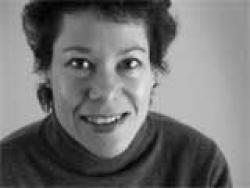Without even trying I can think of a half dozen women
afraid to drive, including my mother.
Oh, maybe not afraid, period, but afraid of:
highways, the big city, cross country, the beltway,
the high speed merge, the GW bridge, the circles in D. C.
I always knew it as something to be feared and fought
because it crawls up on you like an ant
then imbeds itself like a tick that you have to burn out,
pluck by the pincers and shake loose.
But the trick is finding it, figuring out
where it comes from and how it starts: the illness
that keeps you inside for a few weeks,
burgeoning traffic or even some small incident
barely worth mentioning or hardly noticed:
a flat tire, a misplaced key.
I remember my hands trembling on the steering wheel
of my first car, driving around the block on my own,
a new license securely in my purse,
and realizing it was no good, that square of paper.
As I grew older I became conscious of it
in other women, and saw that it wasn’t just driving,
that driving was only one facet of this stone:
the friend who stayed in after the birth of her second baby
as if suddenly the door had been locked from the inside,
and she and her daughter were drenched in gasoline
and the world were a burning match.
London shrank to the size of her house.
Eventually she made her way to the doctor, the
supermarket,
but she’d never really seen the city, and
after a week I knew it better than she
and became her guide. In busses she chattered,
not looking where she was going.
Is the fear more common in beautiful places
To know that always beyond one’s reach is the Place des
Vosges
or the Pantheon, to be savored in tandem if at all.
Some women never get over it.
Their worlds shrink to the size of their bodies
and then still smaller, as when they feel their stomachs
wrench at the sound of steps on the street.
This madness carries itself sanely through the hours
as one learns to compensate: having groceries delivered,
living through the telephone.
Like Marlene Dietrich at the end of her life
in a Paris apartment, the feathered boas and smoking
jackets
sold discreetly piece by piece to pay for rent.
Fear of the marketplace. Fear of buying and selling
and of oneself being sold,
for when all the clothes and memorabilia were gone,
Dietrich knew that her body—
the legs once insured by Lloyds,
the gravelly voice,
the arched eyebrows—
would be next to go.
ISSUE: Autumn 1994







